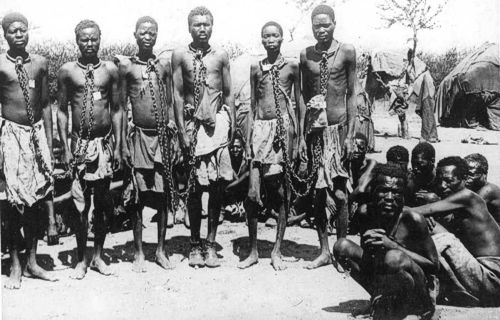This Day in History: August 11, 1904
Additional Date: August 11, 1904
The German colonisation of Namibia, then German South West Africa, took place in 1884. The Herero, a pastoral and nomadic group, had begun to move into Namibia in the 17th century. German settlement in the region started to take place in 1903 and in the process, land was forcibly taken from local groups such as the Herero. A system of forced labour was also introduced, which resulted in strained relations between the German settlers, the Herero and the Namaqua.Local rebellions took place and in 1904, these escalated into the Herero (and Namaqua) Wars, also referred to as the Herero Revolt. In January 1904, the Herero, under the leadership of Samuel Maharero started a rebellion against German colonial rule. With good knowledge of the terrain and reinforcements from the Namaqua, Maharero initially had the upper hand, however, this changed when an additional 14 000 troops were sent from Germany to crush the rebellion.On 11 August 1904, the Battle of Waterberg took place, resulting in the defeat of the Herero. The aftermath of the revolt led to an extermination order, issued by Lieutenant General Lothar von Trotha, in which almost 65 000 Herero were either shot by German troops, or deliberately poisoned. This extermination is often referred to as the Herero genocide.South West Africa came under South African control after World War One and then under UN Trusteeship. Namibia finally gained independence in 1990.In 2004, Germany issued an official apology for the1904 Herero genocide, which was set in motion by the Battle of Waterberg.
